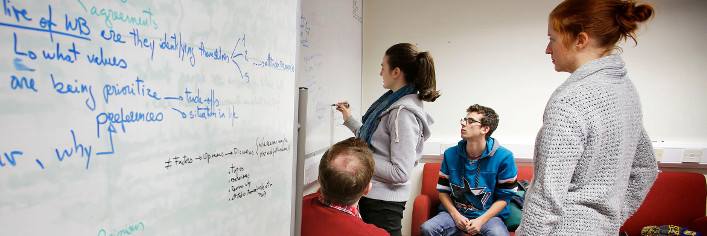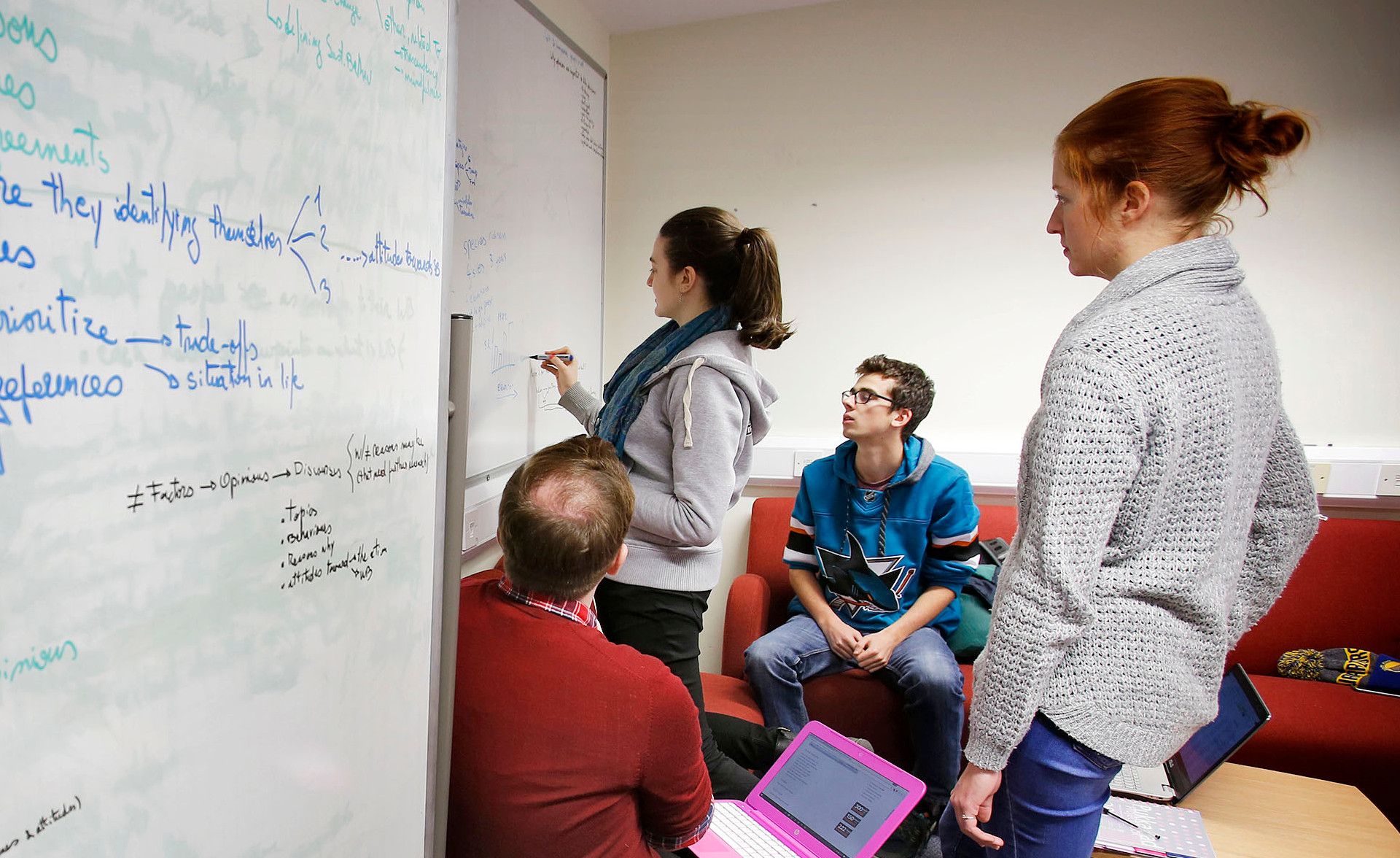
This year we have begun a new collaboration between the Institute of Academic Development (IAD) and Clinical and Health Psychology; working closely together we have developed and delivered skill-based training workshops for students on the MSc Psychology of Mental Health (conversion) programme. The goals of these workshops were to provide an opportunity for new students to develop effective academic skills that they can utilise within their degree, but also in their future careers. Dr Joanne Williams, Dr Frances Parry, and I have been meeting regularly to discuss ideas for the sessions and to design and develop the lecture slides. I have been delivering the two-hour sessions to the students, with help from Frances who has kindly acted as my mentor. Next year, our aim is to run these sessions internally within our Clinical and Health Psychology department.
Our sessions included:
Academic Skills
At this session we discussed in detail the importance of critical thinking and ways to become more critical when reading and writing. We spoke about effective time management and timetabling techniques, how to prevent procrastination, and how to be more active in lectures and tutorials. We discussed effective note taking methods and ended the session with study tips.
Academic writing
Here we focused on the writing process, specifically critical writing. We spoke about ways of ensuring essay questions have been understood and essays remain focused on the question. We spoke about key challenges to academic writing and about specific skills for writing in psychology. We then focused on how to structure essays as well as what constitutes as good or bad evidence and appropriate sources. We also covered how to reference in the style appropriate to their course.
Exams preparation
In this session the focus was on studying strategies and revision techniques. We spoke about effective exam techniques and strategies and went into detail about how to answer different types of exam questions. We provided the students with example exam questions from the previous year. We also touched on marking guidelines for their course and reminded the students of the format and dates for their exams. We ended the session by discussing coping techniques for exam stress.
Working closely with IAD has given us the opportunity to create a balance of general academic skills (using existing materials for universal programmes provided by IAD), and specific skills needed for our discipline, developed by myself based on our programme requirements. Students on this course come from a wide variety of backgrounds, from history to medicine, to business and teaching. Feedback from previous years highlighted that students with no background in psychology or similar, struggled to develop the skills needed in such a short space of time. There was therefore a need to develop extra sessions that allowed them to further develop their academic skills outside of tutorials and lectures, going into more depth than would be possible within one hour tutorial groups or lectures.
We are delighted to have received exceptionally positive feedback from all of the sessions. One full-time student commented:
“thank you very much, I found the sessions to be extremely useful”
Another part-time student commented:
“I wish we had these sessions last year!”.
The feedback has demonstrated the need for these sessions and the importance of continuing with them in the future. We are pleased to say that the sessions have been a success and that we will continue to run these internally in the following years to come.
As a PhD student who is currently tutoring and working towards the Edinburgh Teaching Award (EdTa), I have personally found our collaboration to be extremely rewarding for not only developing my teaching skills, but also in gaining experience collaborating with a different department, allowing me to develop professionally and open my eyes to the wide variety of academic roles within the university.



